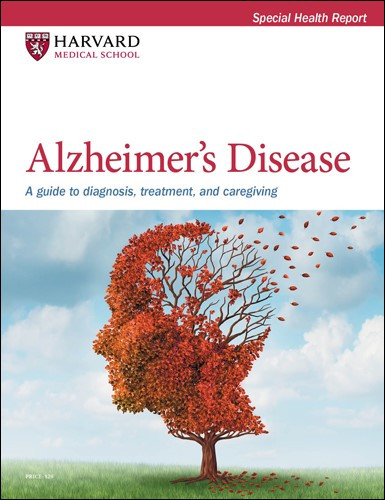High levels of visceral fat may predict Alzheimer's
In the journals
- Reviewed by Howard E. LeWine, MD, Chief Medical Editor, Harvard Health Publishing; Editorial Advisory Board Member, Harvard Health Publishing

Excessive amounts of visceral fat — the deep hidden fat surrounding abdominal organs — appear to be associated with higher levels of abnormal proteins in the brain that are hallmarks of Alzheimer's disease, according to a study presented in December 2024 at the annual meeting of the Radiological Society of North America. Researchers collected data on 80 healthy individuals with an average age of almost 50; 57.5% were obese, with an average body mass index of 31. They had brain PET scans to look for amyloid plaques and tau tangles, which accumulate in the brains of people with Alzheimer's. MRI scans of the abdomen measured visceral fat and subcutaneous fat (the fat under the skin). Blood sugar, insulin, and cholesterol levels also were measured. When the researchers analyzed the results, they found that higher levels of visceral fat, but not subcutaneous fat, were associated with increased amounts of amyloid and tau proteins. People with excess visceral fat also had evidence of greater insulin resistance and lower HDL (good) cholesterol levels, both of which may be connected in some way to brain amyloid deposition. Because of the participants' average age, the scientists suggested that excess visceral fat may be a signal of greater Alzheimer's risk before symptoms appear. They added that introducing lifestyle modifications to maintain a healthy weight and prevent or at least slow visceral fat buildup might be a way to protect against the disease.
To continue reading this article, you must log in.
Subscribe to Harvard Health Online for immediate access to health news and information from Harvard Medical School.
- Research health conditions
- Check your symptoms
- Prepare for a doctor's visit or test
- Find the best treatments and procedures for you
- Explore options for better nutrition and exercise
I'd like to receive access to Harvard Health Online for only $4.99 a month.
Sign Me UpAlready a member? Login ».
About the Author

Matthew Solan, Executive Editor, Harvard Men's Health Watch
About the Reviewer

Howard E. LeWine, MD, Chief Medical Editor, Harvard Health Publishing; Editorial Advisory Board Member, Harvard Health Publishing
Disclaimer:
As a service to our readers, Harvard Health Publishing provides access to our library of archived content. Please note the date of last review or update on all articles.
No content on this site, regardless of date, should ever be used as a substitute for direct medical advice from your doctor or other qualified clinician.













